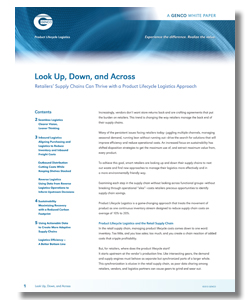Product Lifecycle Logistics and the Retail Supply Chain
Retailers’ Supply Chains Can Thrive with a Product Lifecycle Logistics Approach
Increasingly, vendors don’t want store returns back and are crafting agreements that put the burden on retailers. This trend is changing the way retailers manage the back end of their supply chains.
Many of the persistent issues facing retailers today—juggling multiple channels, managing seasonal demand, running lean without running out—drive the search for solutions that will improve efficiency and reduce operational costs. An increased focus on sustainability has shifted disposition strategies to get the maximum use of, and extract maximum value from, every product.
To achieve this goal, smart retailers are looking up and down their supply chains to root out waste and find new approaches to manage their logistics more effectively and in a more environmentally friendly way.
What’s Related




Favorites





